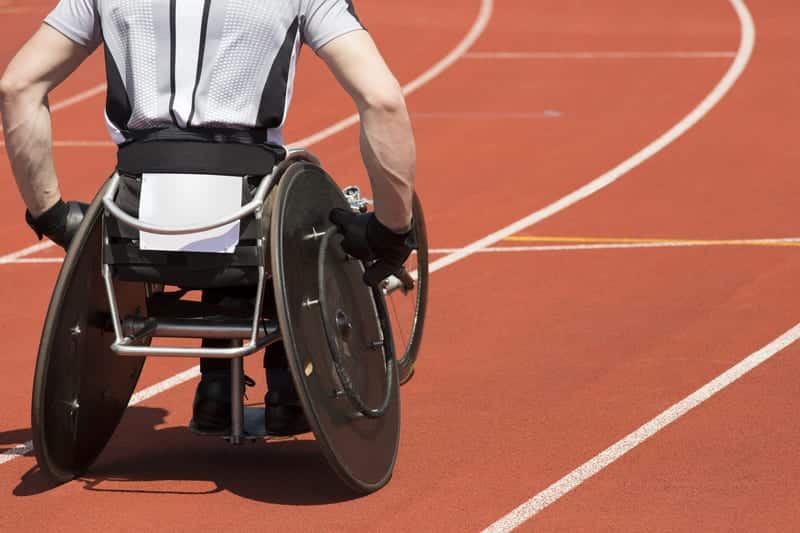By Frank Long, MS, Editorial Director
When an athlete who uses a wheelchair rolls into a gym, it can make coaches and trainers nervous about several different things. Some coaches may fear that they lack the education to work with this population while others may feel uncertain about how to communicate.
It doesn’t have to be this way, though, and Morning Chalk Up, a sports publication focused exclusively on the sport, community, and lifestyle of CrossFit, offers tips for getting past these and other obstacles.
There Isn’t Much Out There
Ignorance and inexperience may cause some coaches to balk at the sight of an adaptive athlete. Education can change that, of course, but according to Alec Zirkenbach, founder of the Adaptive Training Academy, there is a dearth of professional resources to help guide coaches in working with adaptive athletes.
One resource that can help give coaches the information and confidence they need to be successful with the adaptive athlete clientele is an online certification the academy offers to help coaches refine their expertise with this population. Furthermore, Zirkenbach says, the academy is building a video library that offers coaches specific exercises that can be modified for use with adaptive athletes.
Just Ask
In any field, even the best educated and experienced professionals may encounter the unexpected. Fitness facilities and gyms are no exception and, Zirkenbach tells Morning Chalk Up, for most gyms it is only a matter of time before an individual who is affected by a disability comes through the door as a potential client. In such cases one of the best things coaches can do for themselves, Zirkenbach notes, is to simply be prepared to work with that individual. Key to that preparation is to be comfortable asking questions.
Those questions need not be ambiguous and can be directed at building a clear picture of the athlete’s needs. Most likely, Zirkenbach notes, the person who is affected by a disability already know his or her body very well and will have an idea of what limitations may exist.
“So just ask questions and then listen to what they have to say, and if you’re a thoughtful trainer, you’ll be able to work with them by developing a really good feedback loop back and forth,” Zirkenbach says.
Say What?
In the spirit of professionalism, good customer service, and plain old respect, coaches and trainers typically strive to speak to all gym clients in a respectful manner. That is a straightforward task for communication with able-bodied athletes but can be trickier when working with athletes who are affected by a disability.
The solution once again, Zirkenbach says, is to just ask. One example he suggests is: “How do you want me to refer to your condition or impairment?”
“Just get to know the person as much as you can,” Zirkenbach says. “I call my wheelchair athletes Wheelies. It’s a term of endearment among us, but I wouldn’t automatically do that with someone I just met,” he adds.
More tips and resources can be found in the original article published at MorningChalkUp.com.
This article originally published Nov. 4, 2020 under the title, “Why Adaptive Athletes Scare Coaches.”



